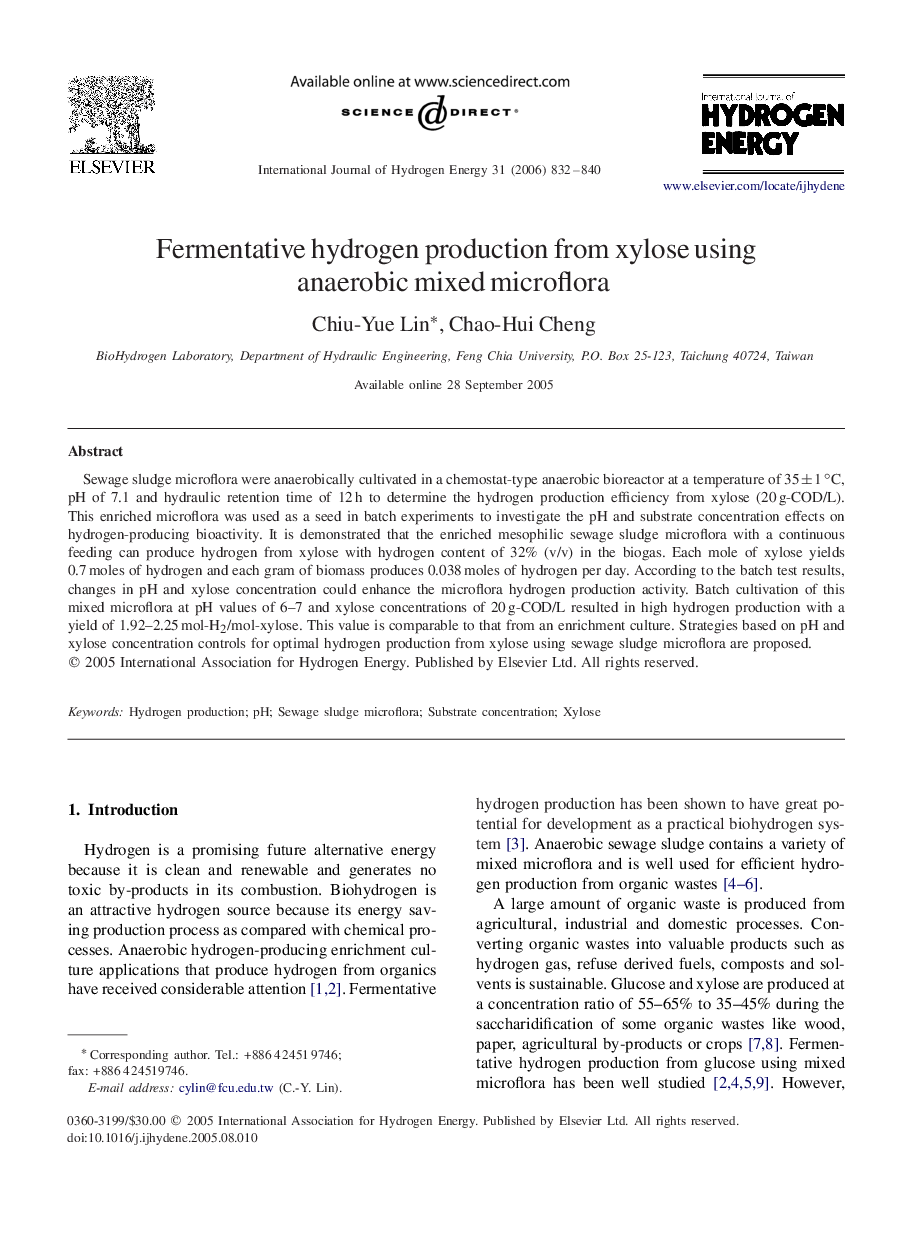| Article ID | Journal | Published Year | Pages | File Type |
|---|---|---|---|---|
| 1280668 | International Journal of Hydrogen Energy | 2006 | 9 Pages |
Sewage sludge microflora were anaerobically cultivated in a chemostat-type anaerobic bioreactor at a temperature of 35±1∘C, pH of 7.1 and hydraulic retention time of 12 h to determine the hydrogen production efficiency from xylose (20 g-COD/L). This enriched microflora was used as a seed in batch experiments to investigate the pH and substrate concentration effects on hydrogen-producing bioactivity. It is demonstrated that the enriched mesophilic sewage sludge microflora with a continuous feeding can produce hydrogen from xylose with hydrogen content of 32% (v/v) in the biogas. Each mole of xylose yields 0.7 moles of hydrogen and each gram of biomass produces 0.038 moles of hydrogen per day. According to the batch test results, changes in pH and xylose concentration could enhance the microflora hydrogen production activity. Batch cultivation of this mixed microflora at pH values of 6–7 and xylose concentrations of 20 g-COD/L resulted in high hydrogen production with a yield of 1.92–2.25 mol-H2H2/mol-xylose. This value is comparable to that from an enrichment culture. Strategies based on pH and xylose concentration controls for optimal hydrogen production from xylose using sewage sludge microflora are proposed.
